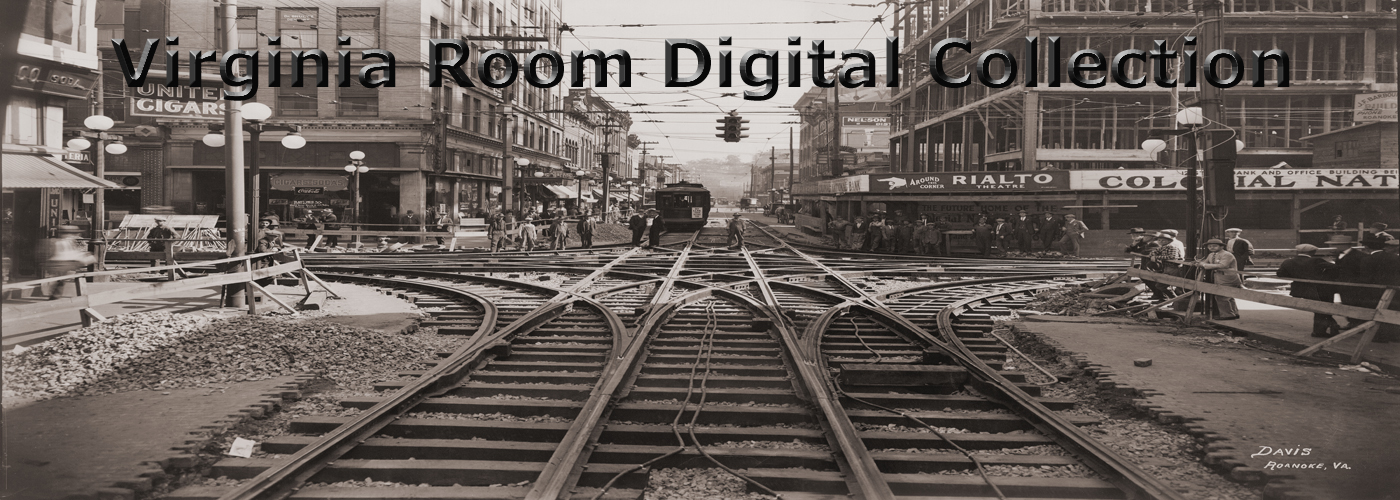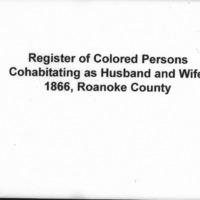Register of Colored Persons Cohabitating as Husband and Wife
Roanoke County, 1866
Dublin Core
Title
Register of Colored Persons Cohabitating as Husband and Wife
Roanoke County, 1866
Roanoke County, 1866
Subject
Genealogy
Description
Prior to the Civil War, enslaved men and women were not legally allowed to marry. However, during slavery many men and women did consider themselves to be married despite the lack of legal protection and recognition, which meant that husbands and wives could be sold away from each other. After the establishment of the Bureau of Refugees, Freedmen, and Abandoned Land (generally known as the Freedmen's Bureau) in 1865 to supervise and manage all matters related to refugees, freedmen, and lands abandoned or seized during the Civil War, the Commissioner ordered county court clerks in Virginia to record the marriages for formerly enslaved couples. In February 1866, Virginia's General Assembly legalized existing marriages between formerly enslaved men and women, in part to prevent their formerly enslaved children from becoming wards of the state. The law authorized men to identify their wives and legalize their marriages and to identify and legitimize their children, but did not provide the ability for women to identify their husbands.
This cohabitation register, or as it is properly titled, "Register of Colored Persons of Roanoke County, State of Virginia, cohabiting together as Husband and Wife on 27th February 1866," was the legal vehicle by which formerly enslaved people legitimized both their marriages and their children. As a result, the surviving spouses and children could inherit property from their deceased spouse or parent in the event that they did not leave a will. This is the first page of the Cohabitation Register for Roanoke County and shows a variety of personal information about the men and women listed here. These records are often the first time that a former slave appeared officially in the public record, and they provide invaluable family information for African American genealogists.
This cohabitation register, or as it is properly titled, "Register of Colored Persons of Roanoke County, State of Virginia, cohabiting together as Husband and Wife on 27th February 1866," was the legal vehicle by which formerly enslaved people legitimized both their marriages and their children. As a result, the surviving spouses and children could inherit property from their deceased spouse or parent in the event that they did not leave a will. This is the first page of the Cohabitation Register for Roanoke County and shows a variety of personal information about the men and women listed here. These records are often the first time that a former slave appeared officially in the public record, and they provide invaluable family information for African American genealogists.
Source
Publisher
Roanoke Public Libraries
Date
1866
Rights
No known restrictions.
Format
pdf
Type
Text
Identifier
1866CohabitationRegister
Coverage
Roanoke County
Is Version Of
Register of Colored Persons Cohabitating as Husband and Wife, 1866
Medium
Microfilm


